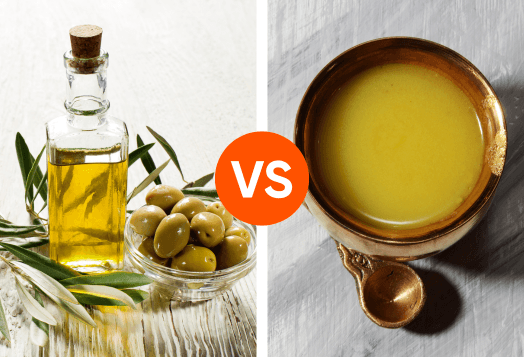
High-protein diets are everywhere, from shakes to grilled chicken bowls; they’ve become the go-to for fitness and weight loss. But here’s the truth: the disadvantages of a high-protein diet may surprise you. Excessive protein intake can negatively impact your kidneys, heart, and digestion, and even lead to weight gain. Let’s break it down simply.
Why Everyone is Talking About Protein
Protein has become the superstar of nutrition. Walk into any grocery store or café, and you’ll find protein-packed snacks, bars, powders, and even coffee. Fitness influencers swear by it, and diet plans often highlight “high-protein meals” as the fastest way to lose fat and build muscle.
And while protein is essential, supporting muscle repair, hormone production, and overall health, the belief that “more is always better” isn’t true. Just like any other nutrient, too much protein comes with risks.
Think of protein like money: essential, but having too much stashed away in the wrong place can cause bigger problems than benefits.
The Hidden Downsides of High-Protein Diets
It’s easy to believe that if a little is good, more must be better. But nutrition doesn’t work that way. Here’s a breakdown of the biggest high-protein diet side effects you should watch out for.
1. Kidney Strain and Long-Term Damage
One of the most serious high-protein diet dangers is its effect on your kidneys. When you consume excess protein, your body produces more nitrogen as a byproduct of breaking down amino acids. Your kidneys must work overtime to flush this out.
For healthy individuals, this may not cause immediate damage.
But if you have even a mild or undiagnosed form of kidney disease, excess protein can accelerate the problem.
Over the years, this constant load can lead to kidney strain, dehydration, and higher risks of chronic kidney conditions. That’s why experts always caution about the risks of high-protein diets for the kidneys.
2. Digestive Issues and Gut Discomfort
Ever wondered why some people on protein-heavy diets complain of constipation or bloating? Many high-protein foods, like meat and dairy, contain little to no fibre. Without enough fibre:
You face digestive issues such as constipation, diarrhoea, and gas.
Poor digestion also affects nutrient absorption, meaning your body misses out on vitamins and minerals.
So, while you’re upping protein, you might unknowingly compromise your gut health.
3. Heart Health Risks
Protein itself isn’t the villain here; it’s the source of protein that matters. Diets loaded with red meats, processed meats, and high-fat dairy often come with added saturated fats and cholesterol.
This can:
Raise your LDL (bad cholesterol) levels.
Increase inflammation in your arteries.
Put you at a higher risk of heart disease.
When it comes to high-protein diets and heart disease, the danger lies in choosing the wrong protein sources. Lean meats, fish, and plant-based proteins are healthier alternatives.
4. Weight Gain Instead of Fat Loss
Many people load up on protein, assuming it’ll speed up weight loss. But here’s the irony: protein still contains calories. If your intake surpasses your energy needs, those calories get stored as fat.
This can lead to:
Weight gain despite working out.
Extra stress on metabolism.
Frustration because the scale moves in the wrong direction.
So yes, high-protein diets and weight gain can happen, especially if portion control is ignored.
5. Bone Health Concerns
Another lesser-known downside of too much protein is its effect on bones. When your diet is heavily tilted toward protein (especially animal-based), your body excretes more calcium through urine. Over time, this calcium loss may lead to a decrease in bone density, making your bones more fragile.
For younger adults, this might not be noticeable right away. But long-term, it raises the risks of osteoporosis and fractures. That’s why bone health is another factor to consider before pushing your protein limits.
6. Nutrient Imbalances and Reduced Variety
Focusing only on protein often means sidelining other important nutrients, such as fibre, antioxidants, and healthy fats. This can create nutrient imbalances that affect:
Energy levels
Metabolism
Immune health
Relying too much on protein shakes and powders makes the problem worse because they often replace whole foods that carry diverse nutrients. In the long run, this can hurt your nutrient absorption and overall health.
How Much Protein Is Really Enough?
So, what’s the right amount? For most adults, 0.8–1.6 grams of protein per kilogram of body weight per day is plenty. Athletes or those with heavy training schedules may need a bit more, but doubling or tripling your needs only invites the disadvantages of a high-protein diet.
Remember: protein is not the only nutrient that matters. Pairing it with carbs, fats, fibre, and micronutrients gives your body the complete package it needs.
The Right Way to Power Up With Protein
So does all this mean you should fear protein? Not at all. The real key is to use protein smartly. Think of it as fuel; enough keeps your body running smoothly, too much clogs the engine.
Here’s how to power up without risk:
Spread protein through the day: Instead of cramming it into one meal, aim for moderate portions at breakfast, lunch, and dinner.
Mix plant and animal sources: Combine beans, lentils, nuts, dairy, fish, and lean meats. This gives you a wider range of amino acids and nutrients.
Balance your plate: A simple rule, ¼ protein, ½ vegetables or fruit, and ¼ whole grains. This keeps fibre and antioxidants in the mix.
Stay hydrated: Adequate water helps your kidneys process protein more easily.
By keeping things balanced with guidance from personal trainers, you enjoy all the benefits of protein, muscle growth, satiety, and metabolism, without the high-protein diet risks.
Protein is vital, but like any nutrient, balance is everything. Don’t fall for the myth that “more protein always equals better health.” Instead, aim for steady, varied, and smart protein intake that supports your goals without harming your kidneys, heart, or digestion.
Disclaimer: This information provided is intended for general informational purposes only. It is not a substitute for professional advice or guidance. For personalised recommendations or specific concerns, please consult a certified professional.




